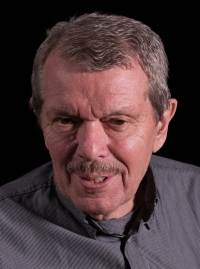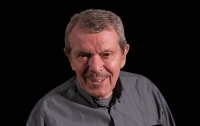JUDr. Pavel Kučera
* 1940 †︎ 2019
-
For example, I have learned how to interrogate in the legal profession; at the initial meeting with the client it was good to learn everything - so that later he could not say: I did not tell you that, Doctor. It was in your own best interest. I learned to log, and I used it abundantly in judging. An experienced judge (and I was experienced fairly quickly when I count the practice of advocacy) knows who is lying to him, I do not need expert opinions. Of course, you won't know it about a professional liar, but when a premeditated man or a witness who comes to 'help' comes to the court, with a clear knowledge that he will lie - every skilful judge will draw the truth out of him. It is not only that he is instructed by a penalty of false testimony, but also about how he behaves... It is work with people.
Writing a paragraph is something quite different, since it is too legislative. And it is completely different to apply that paragraph to a particular person, because it then stays with you all your life. That person, after you do the trial, is not interested in any paragraphs, any legislature. He wants to hear something - and you have to tell him face to face. The cop tells him: Keep talking, it all becomes clear at the court later', even the prosecutor is ultimately just a party to the proceedings, but he who says, 'Get up, hear the judgment on behalf of the republic', and he must say ' You are a murderer, you are a robber, you are a rapist, you are a cheater, you are a judge. And that is quite a power. To do this, one must be equipt on the one hand and, on the other hand, have a sufficient support in the evidence he had previously carried out to make sure that he did not harm that person by that statement.”
-
“I was the only one from Kladno in the law firm. In the morning of August 21 (1968) my father woke me up that planes that landed in Ruzyně were flying over us, above Kladno. For my father, it meant breaking apart, but really breaking up. I didn't know what to do that morning. In Kladno there were no Russian tanks driving around; it was limited to an occupied airport. I could think of nothing better than going to work, a law firm, where there were only crying typists. Sometime in the afternoon the only lawyer from Prague came on foot. He only encountered me as a trainee there and considered it his duty to tell me something, so he said these precious words: 'Colleague, don't worry, nothing is happening. I defended in all kinds of regimes.”
-
“At that time, the study intelligence needed to converge with the working class, the so-called manufacturing practice. During the first semester we were in Hrádek nad Nisou at the SVA factory, State production of car parts, I grinded valves there. It was a year before us and then a year later, then it was cancelled, because no one had stuck such a wedge between labour and intelligence as this manufacturing practice. They hated us there, hated us, and hated us - because we were arrogant, drunken sacks who think of nothing but women and booze.” It was taught properly only starting from the second semester at the Faculty of Law. The young men lived in the factory for half a year, the students lived in Václavice, about five kilometres from Hrádek.”
-
Full recordings
-
Praha, 16.07.2019
(audio)
duration: 02:07:22
Full recordings are available only for logged users.
Judging is working with people
Pavel Kučera was born on 11 February 1940 in Kladno as the only child of Helena and Antonín Kučerová. The relatively calm course of his childhood was not fundamentally disturbed by the end of the war or the communist coup in February 1948. After graduation in 1957 he began to study at the Prague University of Economics. Because he had problems with mathematics and generally was not yet fully mature for a relaxed university regime, after two years of study at the University of Economics, he enlisted in compulsory military service to the radio engineering troops in Central Bohemia Dobříš. During the war he also enrolled again, this time at the Law Faculty of Charles University. In August 1967 he joined the Kladno office as a junior lawyer. He was not a member of the Communist Party of Czechoslovakia, he saw the social liberation during the Prague Spring of 1968 with enthusiasm and considered emigration after the invasion of Warsaw Pact troops. In 1972 he became a criminal judge at the District Court in Kladno; in 1977 he joined the Regional Court in Prague. After the Velvet Revolution he worked as deputy head of the Office of the President of the Czech Republic, Václav Havel, in 1991 he was appointed a judge of the Supreme Court of the CSFR and after the establishment of an independent Czech Republic he was vice-chairman of the Supreme Court of the Czech Republic. He left the judiciary in 2010 in connection with allegedly influencing the case of the then Deputy Prime Minister Jiří Čunek, who was accused of taking a bribe, and returned to advocacy. He died on July 23, 2019.

